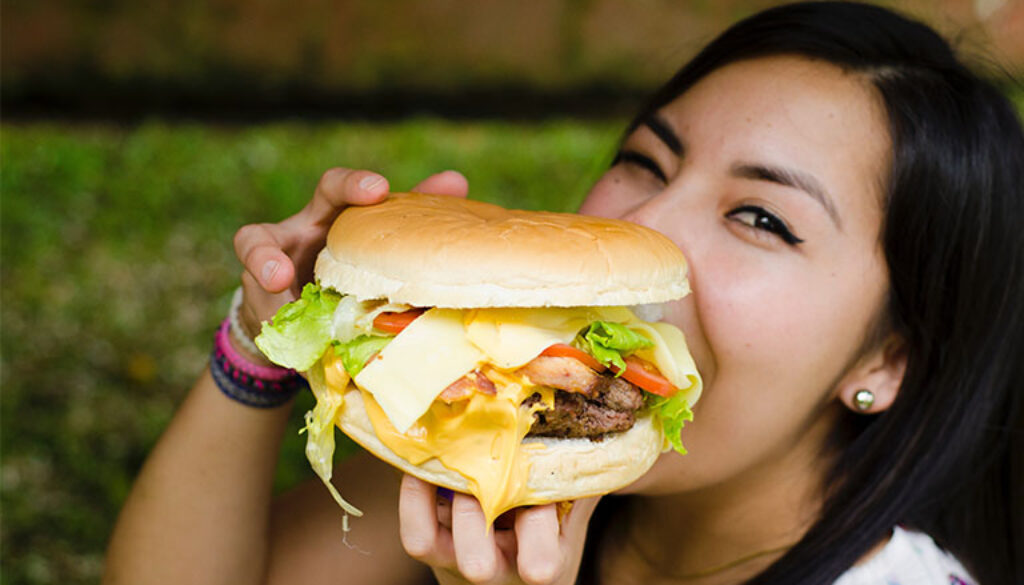How Can You Overcome Emotional Eating?
Your body isn’t hungry, but you keep reaching for food. Depression. Eat. Elation. Eat. Stress. Eat. Boredom. Eat.
How can you overcome emotional eating? It’s so ingrained in the rhythm of your life. Food is always there, offering you an emotional release both during and after eating. You don’t even have friends who are that comforting.
Emotional eating is a physiological reliance on food for emotional coping, and it has both physical and psychological causes. If food is always present and emotions are always lurking, how can you overcome emotional eating without avoiding both altogether?
Because food is essential to life, it is important to understand and recognize the difference between physical hunger and emotional hunger.
That growl from your stomach is a cry for nutrients. Physical hunger is rarely specific in its preferences and satisfying it doesn’t leave you with regret and guilt.
Emotional hunger, on the other hand, is hunger from your head. It craves specific foods to assuage a laundry list of emotions, both negative and positive. It can lead you to a mindless binge of high-fat, sugar-laced foods and leave you with immediate regret and guilt. And the cycle that led you to raid your stash drawer in the first-place hits “repeat” …again…and again….
So how can you overcome emotional eating and restore the nutritive function of food in your life? Let’s look at some strategies for helping you with both your emotions and you’re eating.
-
Start a diet/eating journal. Keep it with you throughout the day, and keep track of everything you eat, the time you eat and where you eat. Include any people who may be with you at the time. Most importantly, note your emotions at the time of your eating. Are you stressed? Bored? Depressed? Happy? Sometimes it is even easier when you take pictures of everything that passes your lips. It will help you pause for a moment to do a check up from the neck up about your emotions and what you are putting in your mouth.
-
Become aware of your feelings. Emotions fuel behavior and provide information about your needs. Problems arise when you don’t express or communicate those feelings in a healthy way, but instead self-soothe with food (or alcohol, drugs, shopping, etc.). Add these emotions to your log, even if you do not eat at the time they arise. Is your body hungry, or just your mind?
-
Accept your feelings instead of stuffing them down with food. Learn to ride out the storm of negative emotions, knowing that they will subside. Sitting with your emotions, actually feeling them, then letting them pass is a practice in developing tolerance. It’s like increasing your pain threshold through strenuous athletic conditioning. It may only take a few minutes but know they will pass.
-
Practice relaxation exercises and stress management — mindfulness, meditation, deep breathing, getting out into nature. Something as simple as taking three deep, cleansing breaths while visualizing tension leaving your body can decrease your stress response, heart rate and blood pressure, while enhancing your immune system.
-
Eat mindfully. Be present to the moment and to the process of eating. Thoughtfully prepare your food. Eat at a table. Pull out the china you keep in a box in the garage. Enjoy the experience of eating and make note of your emotions and somatic feelings.
-
Seek support. Emotional eating can be related to or represent the onset of food addiction. Seeking professional help can help assure you don’t delve any deeper into the cycle of emotional eating. Getting help can make something that seems helpless become possible.
The answer to “How can you overcome emotional eating?” can be summed up in three words: Feel, don’t eat.
“Well, that’s the point,” you may be thinking. “I don’t want to feel.”
Eating in lieu of feeling is about distraction, and it is only a postponement of the inevitable. There is never going to be a perfect time to create positive change. The time to do the right thing — the healthy thing — is always now.
Remember these handy adages: “your feelings won’t kill you” and “what you resist persists.”
And no matter what that candy wrapper may say, food doesn’t have the power to help you cope. Only you have that power. And the right support can help you recognize and reclaim it.
Take the first step. Ask for help.
Reach out to us here we have walked the same journey and know how to move past it.



